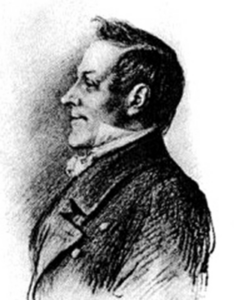Song of the eyes
(Poet's title: Augenlied)
Set by Schubert:
D 297
[probably early 1817]
Süße Augen, klare Bronnen,
Meine Qual und Seligkeit
Ist fürwahr aus euch geronnen
Und mein Dichten euch geweiht.
Wo ich weile,
Wo ich eile,
Liebend strahlet ihr mich an;
Ihr erleuchtet,
Ihr befeuchtet
Mir mit Tränen meine Bahn.
Treue Sterne, schwindet nimmer,
Leitet mich zum Acheron!
Und mit eurem letzten Schimmer
Sei mein Leben auch entflohn.
Sweet eyes, clear fountains,
My anxiety and contentment
Definitely derive from you
And my poetry is dedicated to you.
Wherever I remain,
Wherever I rush about,
You shine lovingly in my direction;
You light me up,
You provide moisture
For me with tears on my course.
Faithful stars, never disappear,
Lead me to Acheron!
And with your last gleam
May my life also fly off.
All translations into English that appear on this website, unless otherwise stated, are by Malcolm Wren. You are free to use them on condition that you acknowledge Malcolm Wren as the translator and schubertsong.uk as the source. Unless otherwise stated, the comments and essays that appear after the texts and translations are by Malcolm Wren and are © Copyright.
☙
Themes and images in this text:
Eyes Light Paths Poetry Springs, sources and fountains Stars Sweetness Tears and crying The underworld (Orcus, Hades etc)
We know nothing about these eyes apart from their effect on the speaker. They look in his direction, they are the source of his happiness and his misery, they inspire his poetry. They shed light and water on his path. They are the stars by which he navigates through life and which will lead him to the underworld (Acheron is one of the rivers of Hades in Greek mythology). When their light eventually fades he himself will die.
So what or who is behind all of this? We are told nothing, not even the colour of the eyes or whether the look being directed at the speaker is one of love, pity or disdain. Are the eyes those of a man or woman (Mayrhofer may have disapproved of his own sexual orientation)? Are they even anything to do with the author’s own experience or just a formalistic exercise in love poetry? We notice that the ‘you’ (ihr / euch) addressed in the text is always the eyes themselves, never the person looking through them; we are therefore being invited to see the situation from a very specific point of view indeed – that of the poetic persona whose identity derives not from any inner subjectivity from being the object of attention.
☙
Original Spelling
Augenlied
Süße Augen, klare Bronnen!
Meine Qual und Seligkeit
Ist fürwahr aus euch geronnen,
Und mein Dichten euch geweiht.
Wo ich weile,
Wo ich eile,
Liebend strahlet ihr mich an;
Ihr erleuchtet,
Ihr befeuchtet
Mir mit Thränen meine Bahn.
Treue Sterne schwindet nimmer,
Leitet mich zum Acheron!
Und mit eurem letzten Schimmer
Sey mein Leben auch entflohn.
Confirmed by Peter Rastl with Gedichte von Johann Mayrhofer. Wien. Bey Friedrich Volke. 1824, page 59.
To see an early edition of the text, go to page 59 [73 von 212] here: http://digital.onb.ac.at/OnbViewer/viewer.faces?doc=ABO_%2BZ177450902


